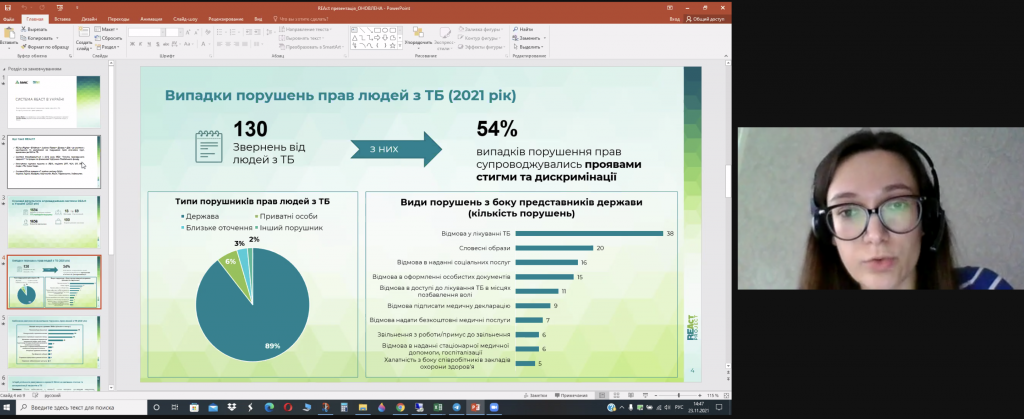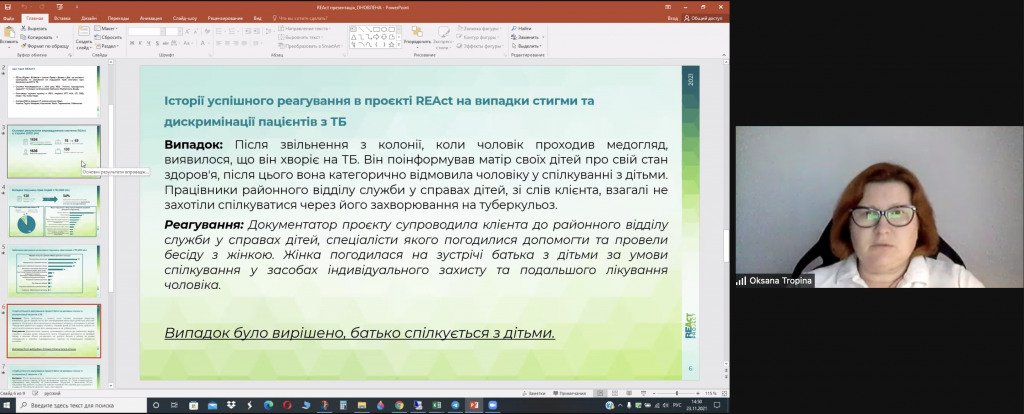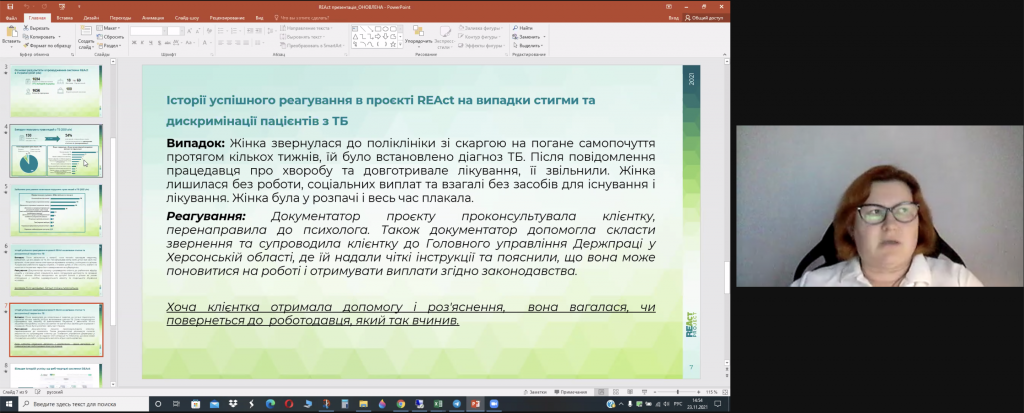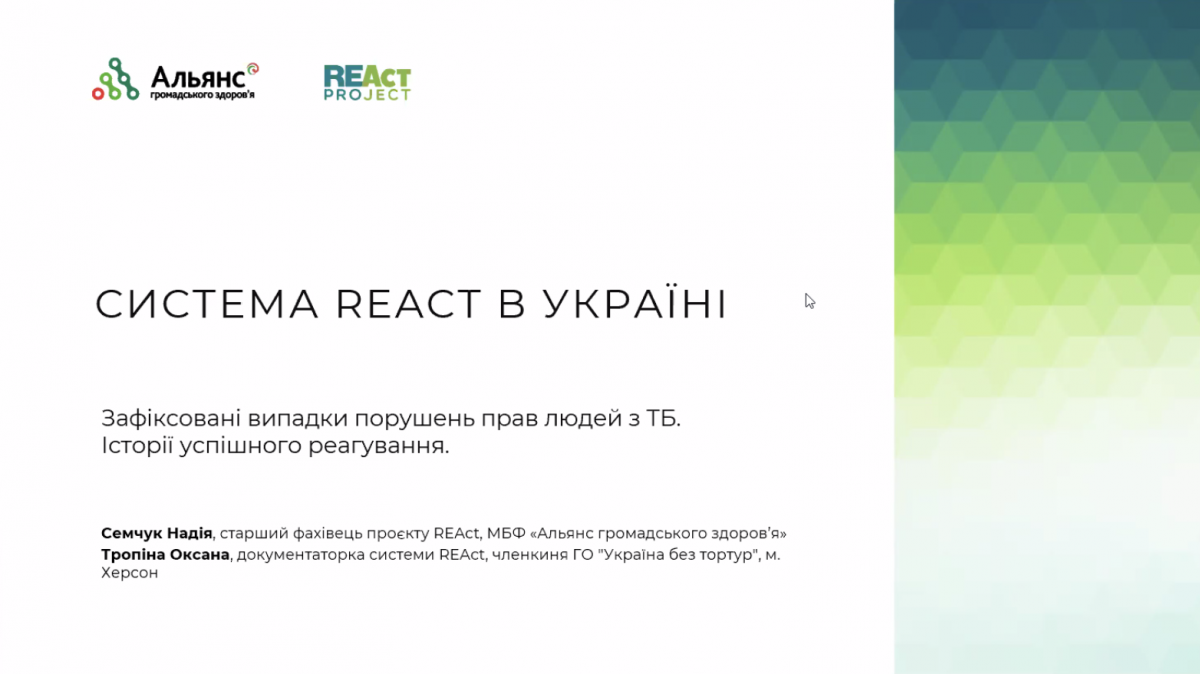A webinar on the implementation of measures to reduce the stigma and discrimination of people affected by TB was held on November 23 by “Stop TB. Ukraine” Partnership.
During the event, the representatives of non-governmental and national organizations discussed matters related to effective methods and successful experiences of overcoming the stigma and discrimination of people affected by TB.

In one of the sessions Nadiia Semchuk, senior specialist of REAct project, presented the work of the REAct system. The speaker noted that as of today, 1694 reports of violations of rights of people vulnerable to HIV and TB, were registered in the REAct monitoring and response system, 77% were fully resolved. Thanks to the work of 69 organizations, the system operates in 18 regions of Ukraine.
As for the violations of the rights of people affected by TB, 130 reports were received in 2021, 54% of which related to stigma and discrimination. According to the collected data, the majority of cases faced by people affected by TB included refusal to treat TB (38), verbal insults (20), and refusal to provide social services (16). The most common violations were on the part of the public institutions (89%).
Oksana Tropina, a REActor, a SCO “Ukraine without tortures” member, presented two cases of successful response to address the violations of rights of key populations in Kherson oblast. The speaker noted that the system is actively used considering the large TB incidence in the region. Oksana said that there are quite many TB patients in Penitentiary Facility # 7 in Kherson Oblast. After their release, they often face the realia they are not ready for. Often, they do not classify problems they encounter in obtaining services, as stigma and discrimination, therefore such cases demand special attention.
The first case told by the REActor was about a man with TB who wanted to re-establish communication with his children upon release from the colony. The mother of the children reacted negatively, so he contacted the Service on child matters. The officials did not want to talk to him and closed the door in front of him after they heard about his disease. After that, the man contacted the REActor, who offered psychological support and conducted initial legal counseling. According to the man, reestablishing contact with children was the most important thing for him, so, together with Oksana, they approached the Service again for proper assistance. This time they negotiated a meeting with the former wife of the client. They talked, and she agreed to allow communication of the children with their father, upon condition that personal protection means are worn, and the man continues his treatment.

The other story was about a woman who was seeking care from the policlinic for she was not feeling well. Based on the results of the examination, she was diagnosed with TB. When her employer learned about her diagnosis, he started to pressure her and then told her to resign. At one moment the woman remained unemployed, without any means for living and treatment. She contacted the REActor for psychological and legal support. Together they decided to file a request to the Main Office of the State Labor Service, where the woman was provided clear explanations and instructions. The situation was positively resolved, and the woman continues working.



